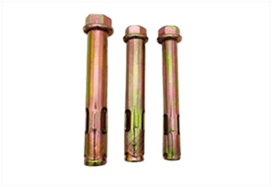8 月 . 14, 2024 12:46 Back to list
Exploring the Benefits and Applications of Metal Cased Oil Seals in Industrial Machinery
Understanding Metal Cased Oil Seals and Their Applications
Metal cased oil seals, also known as metal stranded or metal-cased seals, are an essential component in various mechanical systems, providing reliable sealing solutions to prevent the leakage of lubricants, oils, and other fluids. These seals are designed to protect machinery by ensuring that contaminants do not enter the internal components while maintaining the integrity of the lubricating substances.
Composition and Design
Metal cased oil seals are primarily made of two materials a flexible sealing element, which is typically rubber or elastomeric, and a rigid metal casing that provides structural integrity. The combination of these materials ensures that the seal can withstand both dynamic and static conditions while maintaining its form and flexibility over time.
The design of a metal cased oil seal generally includes a lip that makes contact with the shaft, creating a barrier against fluid leakage. This lip can come in various shapes and sizes, depending on the specific requirements of the application. Some designs also feature additional elements, such as springs, that help maintain contact pressure against the shaft, enhancing the seal's effectiveness.
Applications
Metal cased oil seals are widely used across various industries, including automotive, aerospace, marine, and heavy machinery. In automotive applications, for example, these seals are commonly found in engines, transmission systems, and differential housings. They play a crucial role in ensuring optimal performance and longevity of the vehicles by preventing the loss of oil and coolant.
In industrial machinery, metal cased oil seals are utilized in gearboxes, pumps, and hydraulic systems
. Their ability to withstand temperatures and pressures makes them ideal for demanding environments where reliability is paramount. Additionally, in the aerospace industry, where equipment is subject to extreme conditions, the durability of these seals is crucial to maintain the operational integrity of aircraft systems.metal cased oil seals

Benefits of Metal Cased Oil Seals
One of the primary advantages of metal cased oil seals is their robustness. The metal casing enhances their resistance to wear and tear, making them suitable for high-speed applications. Unlike other types of seals, such as those made purely from rubber, metal cased seals can handle a wider range of temperatures and pressures without losing their sealing capabilities.
Moreover, these seals are designed to be easy to install and replace. Their standardized dimensions often allow for seamless integration into existing machinery, reducing downtime during maintenance and repairs. Furthermore, their durability translates to longer service life, which can significantly reduce overall operational costs by minimizing the frequency of replacements.
Considerations for Selection
When selecting a metal cased oil seal, several factors must be considered, including the specific application, operating conditions, and the type of fluid involved. The compatibility of the seal material with the fluid is crucial; for instance, certain elastomers may degrade when exposed to specific chemicals. Additionally, it's essential to assess the temperature and pressure ranges the seal will encounter, as these factors will significantly influence its performance and longevity.
The right seal also plays a pivotal role in energy efficiency. A well-sealed system reduces friction and energy losses, which is increasingly important in today's economy, where energy efficiency is a priority for many businesses.
Conclusion
Metal cased oil seals are vital components in numerous mechanical applications. Their unique construction combines flexibility and strength, providing effective sealing solutions that enhance machinery performance and reliability. As industries continue to evolve, the demand for durable and efficient sealing solutions will only increase, making metal cased oil seals an integral part of modern engineering practices. Understanding their features, benefits, and selection criteria will help businesses make informed decisions that improve operational efficiency and product longevity.